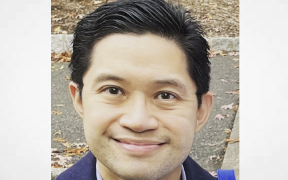Welcome to Original Jurisdiction, the latest legal publication by me, David Lat. You can learn more about Original Jurisdiction by reading its About page, and you can email me at davidlat@substack.com. This is a reader-supported publication; you can subscribe by clicking here.
We’re all familiar with the infamous tale of the lawyers who filed a brief full of nonexistent cases—courtesy of ChatGPT, the AI tool that made up aka “hallucinated” the fake citations. In the end, Judge Kevin Castel (S.D.N.Y.) sanctioned the attorneys, to the tune of $5,000—but the national notoriety was surely far worse.
The offending lawyers, Steven Schwartz and Peter LoDuca, worked at a tiny New York law firm by the name of Levidow, Levidow & Oberman. And it seems that their screw-up stemmed in part from resource constraints, which small firms frequently struggle with. As they explained to Judge Castel at the sanctions hearing, at the time their firm did not have access to Westlaw or LexisNexis—which are, as we all know, extremely expensive—and the type of subscription they had to Fastcase did not provide them with full access to federal cases.
But what about lawyers who work for one of the nation’s largest law firms? They shouldn’t have any excuse, right?
Whether they have an excuse or not, it appears that they too can make the same mistake. Yesterday, Judge Kelly Rankin of the District of Wyoming issued an order to show cause in Wadsworth v. Walmart Inc. (emphasis in the original):
This matter is before the Court on its own notice. On January 22, 2025, Plaintiffs filed their Motions in Limine. [ECF No. 141]. Therein, Plaintiffs cited nine total cases:
1. Wyoming v. U.S. Department of Energy, 2006 WL 3801910 (D. Wyo. 2006);
2. Holland v. Keller, 2018 WL 2446162 (D. Wyo. 2018);
3. United States v. Hargrove, 2019 WL 2516279 (D. Wyo. 2019);
4. Meyer v. City of Cheyenne, 2017 WL 3461055 (D. Wyo. 2017);
5. U.S. v. Caraway, 534 F.3d 1290 (10th Cir. 2008);
6. Benson v. State of Wyoming, 2010 WL 4683851 (D. Wyo. 2010);
7. Smith v. United States, 2011 WL 2160468 (D. Wyo. 2011);
8. Woods v. BNSF Railway Co., 2016 WL 165971 (D. Wyo. 2016); and
9. Fitzgerald v. City of New York, 2018 WL 3037217 (S.D.N.Y. 2018).
See [ECF No. 141].
The problem with these cases is that none exist, except United States v. Caraway, 534 F.3d 1290 (10th Cir. 2008). The cases are not identifiable by their Westlaw cite, and the Court cannot locate the District of Wyoming cases by their case name in its local Electronic Court Filing System. Defendants aver through counsel that “at least some of these mis-cited cases can be found on ChatGPT.” [ECF No. 150] (providing a picture of ChatGPT locating “Meyer v. City of Cheyenne” through the fake Westlaw identifier).
Read the full article at




